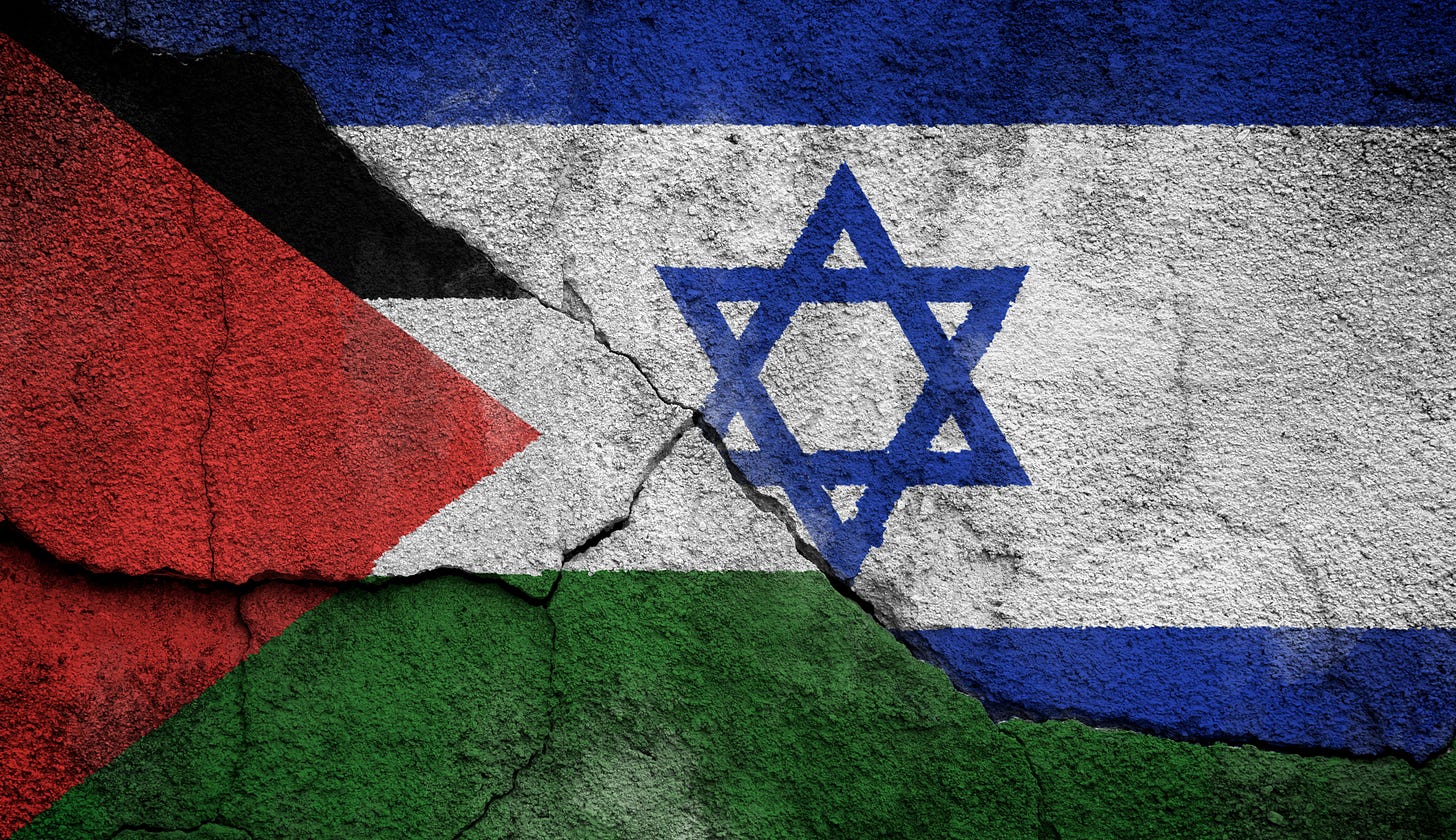Resources to help us think, pray, and act through the Israeli-Palestinian conflict
These are writers with different identities, histories, and viewpoints. Together, they help move us beyond binary perspectives.
The crisis of violence continues to grow deeper, and the suffering, especially of civilians, brutally increases, and the war threatens to widen in the Middle East. In the United States, whose role in the Israeli/Palestinian conflict has been unique, and elsewhere, the discourse around the war has grown more polarized.
We all need deeper thinking, and more praying that leads to action to save civilian lives.
As my column said last week, peacemaking means conflict resolution, getting involved with difficult questions that must be answered. Peacemakers often say that war-making must answer the question of what is next – which the Netanyahu government has completely failed to do.
But ceasefires must also answer the same questions. What could come next after a ceasefire?
I wrestle with those questions most days now, and continue to be in conversations with frightened, lonely, and agonizing people on all sides of the conflict.
Clearly, a plan for Mideast peace, even an international commitment to finally forge a two state solution, must follow any ceasefire. The ways that Israel defends itself also must be re-examined and changed. The priority of freeing hostages, and the primary purpose of humanitarian aid in a human catastrophe could hopefully help lead to the future political horizon of a plan for peace. There simply will be no peace until dignity, freedom, justice, and security are available for both Palestinians and Israelis.
I wanted to share with all of you, my readers and friends, some of the things I am reading and hearing that have been helpful to me, as I try to find answers to these huge questions. These are writers with different identities, histories, and viewpoints, but help move us beyond binary perspectives. They are all helpful to me and hope they will be helpful to you.
One is from New York Times columnist Tom Friedman, a veteran reporter on the Middle East, who write about “The Most Revealing Moment From My Trip to Israel.”
Another is from King Abdullah II of Jordan, an Arab leader who knows this crisis very well, who writes about the need for a two-state solution: King of Jordan: A two-state solution would be a victory for our common humanity.
Nicholas Kristof, whose wisdom, experience, and compassion for all sides has made him one of the most trusted international commentators in the world, writes about joint Israeli and Palestinian nonprofit made up of people who have lost loved ones to the conflict: “Meet the Champions of Nuance and Empathy We Need.”
The South African theologian Charles Villa-Vicencio was a principal advisor to Desmond Tutu’s Truth and Reconciliation Commission. He writes about how the “Desire for revenge renders any short-term mechanism of peace-making in Gaza unrealistic.”
Finally, a clip of a CNN interview by Christiane Amanpour with Daniel Levy, the negotiator with the Palestinians for two former Israeli Prime Ministers, about Israel's attempt to destroy Hamas and what Gaza might look like "the day after."
I invite you to join me and so many others now to think, pray, and act.




It is hard to ignore Hamas and excuse them when they hide behind citizens and have command centers in hospitals. They are killing their people. I don't excuse Israel but I do condemn Hamas
' actions that lead to the killing of Palestinians.